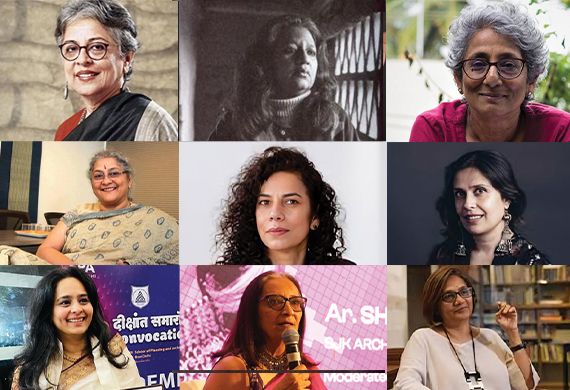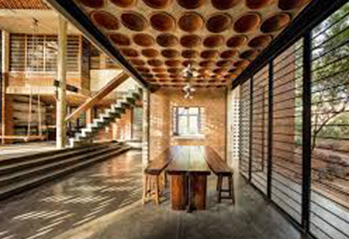
Meet 7 Iconic Women Architects of Modern India & their Most Impactful Work
By: WE staff
Anupama Kundoo - Anupama Kundoo Architects
 Anupama Kundoo was born on 1967, founder of Anupama Kundoo Architects in 1990, is a world-renowned Indian architect whose practice is characterized by its strong commitment to material innovation, low environmental footprint, and human-scale design.
Anupama Kundoo was born on 1967, founder of Anupama Kundoo Architects in 1990, is a world-renowned Indian architect whose practice is characterized by its strong commitment to material innovation, low environmental footprint, and human-scale design.
Starting out in Auroville, Tamil Nadu, Anupama threw herself into testing the available and often nonconventional local building materials, wedded as she was to traditional craftsmanship and modern construction methods.
Her philosophy of architecture involves the design of buildings that are resource-smart, culturally embedded, and context-sensitive, and also function as living laboratories to conduct studies in housing, sustainability, and social justice.
Impactful Designs

Her most celebrated work is the Wall House in Auroville, a residence which is a statement of her theory of practice—combining art, science, and ecology. The architecture portrays her belief that architecture is not just about shelter provision but about the generation of experience, using handmade embellishments, recycled materials, and climatic regulation.
One of the most legendary works is Full Fill Homes, a ferrocement prefabricated modular home system, which was intended to address the shortage of affordability in housing while minimizing its environmental impact. The structure was shown worldwide, for example, in the Venice Architecture Biennale.
She has also created volunteer housing, community buildings, and education spaces in Auroville, all which reflect her vision of architecture as a force for social transformation.
Kundoo's design philosophy is defined by low environmental impact, handcrafted aesthetic, and material experimentation from earth and ferrocement to recycled steel and glass. She tends to incorporate craft-based processes with artisans having an active role in the construction process, which makes the spaces tactile, warm, and culturally significant.






